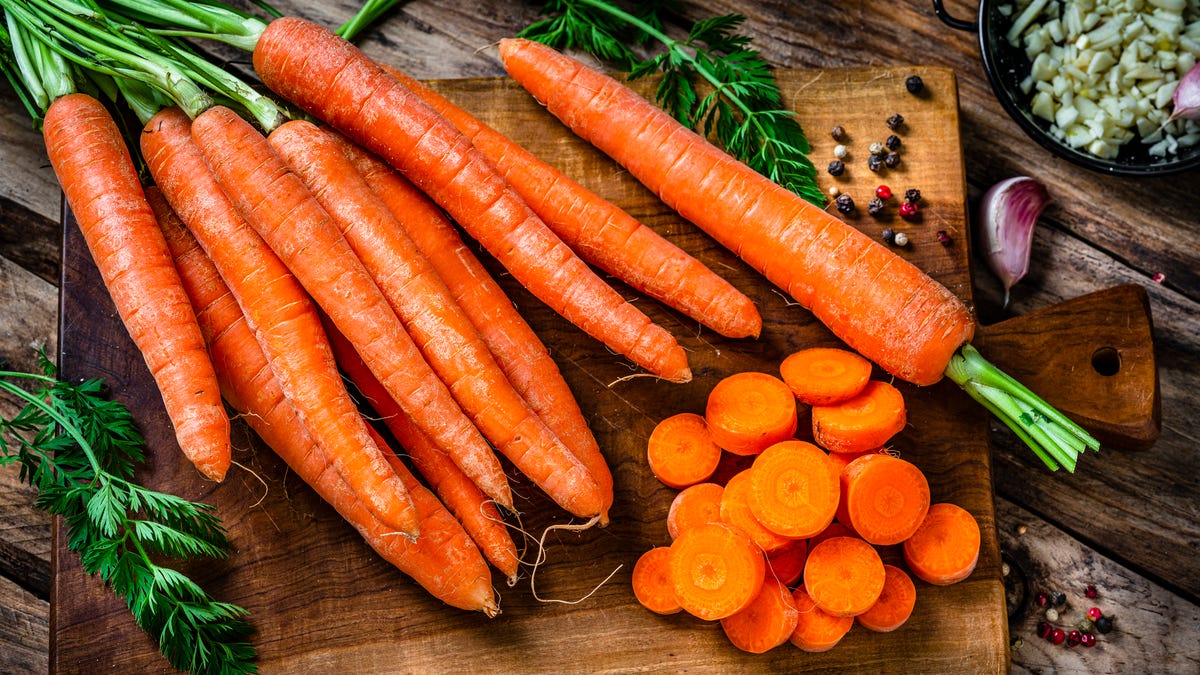
Healthy snack ideas for the office
These snack boxes are healthy, delicious and easy to make.
ProblemSolved, Reviewed
Carrots: Not just good for fictional bunny rabbits to chomp on.
Nutrition experts love the usually orange – but sometimes yellow, red, white or purple – vegetables not only for their health benefits, but also because their versatility makes it easy to add nutrients to your diet regardless of your personal preferences.
“I love them roasted because they caramelize and taste naturally sweet,” says registered dietitian Caroline Thomason Bunn, RD, CDCES. For more variation, she also recommends eating them shredded in salads, blended in soups, raw with hummus or tzatziki and even blended into muffins for some added hidden nutrition.
Here’s what to know about the nutritional value of carrots, and how that can help boost your health.
What are carrots good for?
Carrots offer a variety of vitamins, minerals and antioxidants that support many things including immunity, heart, kidney and liver health, according to WebMD. A 1/2 cup of carrots can help you work toward reaching your daily vitamin and mineral goals with about 73% of daily recommended amount of vitamin A, 9% of vitamin K, 8% of potassium and fiber, 5% of vitamin C and 2% of calcium and iron.
“Carrots are little orange nutrition powerhouses,” Bunn says. “They are packed with beta-carotene, which your body turns into vitamin A for healthy eyes, skin and immunity. They’re also a great source of soluble fiber, which supports regular digestion and steady blood sugar levels.”
What is the healthiest vegetable to eat every day?
Carrots are up there among some of the foods that offer the most health benefits overall, but nutrition experts also want consumers to remember that there’s no one-size-fits-all approach to eating healthy.
“The healthiest food in any category will depend on you, your budget, your culture, your health goals and so much more,” registered dietitian Miranda Galati previously told USA TODAY. “It’s amazing to make more nutrient-dense choices when possible, but choosing the more processed or convenient option isn’t always a bad thing either. As a registered dietitian who wants you to build a healthy lifestyle that lasts, I’d recommend ditching the idea that there’s a healthiest version of anything.”
If you are looking for ways to generally boost your health, there are a number of study-backed tactics you can focus on, though.
“The strongest research shows that you can improve your health by eating a balanced diet with fruits, veggies, whole grains, lean proteins and healthy fats, along with staying active and engaging in healthy lifestyle choices,” registered dietitian Jamie Nadeau previously added. “I recommend focusing on overall balanced meals with adequate protein and fiber, practicing eating mindfully and honing in on hunger and fullness.”

